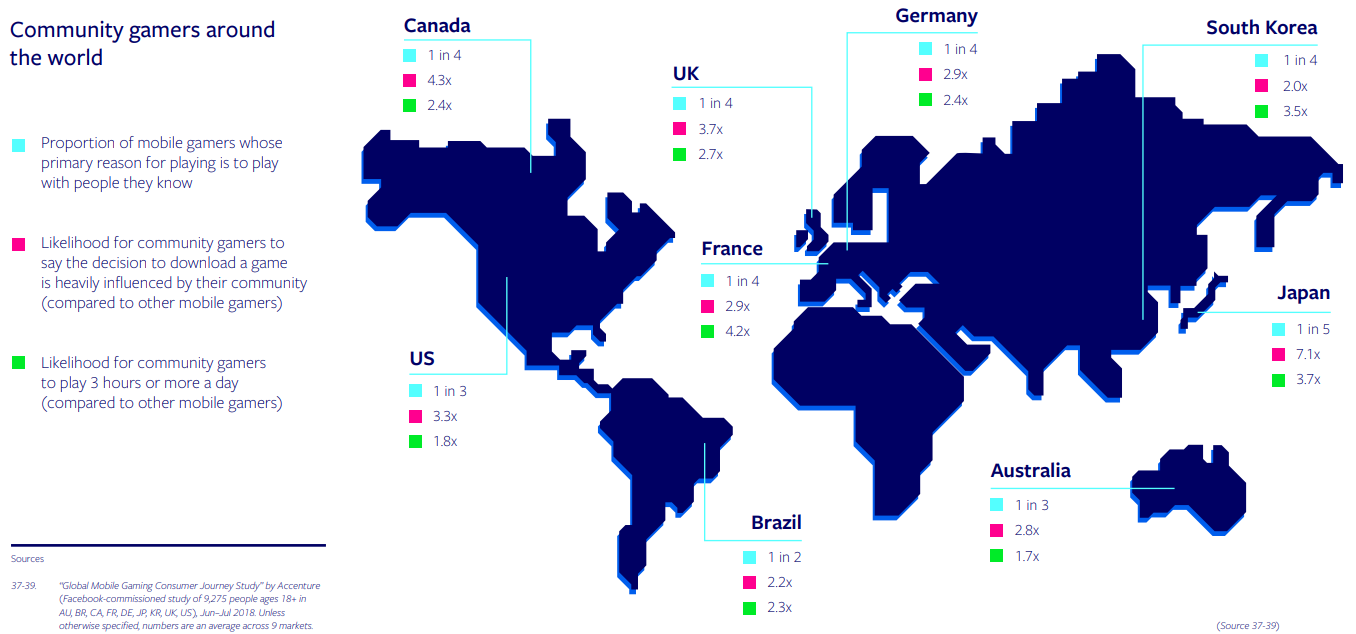Facebook rolls out gaming report to reiterate its commitment to video games
Facebook published a report on global trends in video games market. As per its findings, there are two main phenomena defining the industry.
Diversification
The first one is diversification. The rise of hyper-casual gaming has been widely acknowledged by most analysts. According to Facebook, however, there is a lot going on at the opposite end of the gaming spectrum, with hardcore titles also creating growth opportunities even on mobile.
On a related note, gamers also want greater diversity in ads. 73% of surveyed players complained that they see too many of the same ad.
Appetite for recognizable franchises
The other distinct trend is an increasing gravitation toward familiar brands and intellectual property (IP).
75% of console gamers find existing IP influential when choosing which game to play. 49% of console gamers will even remain loyal to a franchise even if the latest game in the series wasn’t as successful as its predecessors.
Making crossovers with other strong IPs can go a long way in keeping gamers engaged. Moreover, timing a game launch or event to coincide with the same IP’s big moment in another medium, for example, a movie, can dramatically boost the game’s performance.
In other findings:
- The overall number of gamers continues to grow year on year, even the growth rate begins to slow down, especially in mature markets.
- 61% of US mobile gamers have felt post-purchase regret after buying an in-game item or currency. This happens when a purchase fails to provide an anticipated value. In the wost case scenario, a player experiencing a post-purchase regret will be unwilling to make any more purchases in the game.
- Having community gamers in your player base can be a key differentiator for how your games performs. Community gamers play to connect with others. Community gamers influence each other’s downloading decisions. Community gamers are two to four times more likely than other mobile gamers to play for more than three hours a day. They are also two to almost four times more likely to spend money on buying a game or in-game purchases compared to other mobile gamers.
The role of community gamers in the global gaming economy
While the report itself is hardly an eye-opener for anybody paying attention, the very fact that Facebook published it is significant enough. As Rick Kelley, vice president of global gaming at Facebook, told VentureBeat, “We wanted to share that Facebook very much cares about gaming. That was part of the impetus for putting the report out. We’re committed to building community around gaming, a place where everyone can come and enjoy the gaming experience, whether that’s playing games, watching games, discovering new games to play, and interacting with other players through different aspects of our platform, such as groups or the video experience. We’re trying to explore some of these trends that impact the landscape and address some questions proactively that game developers might have.”
And it’s not just market studies. Facebook is now actively developing its own OS for AR devices. It has also purchased studios like PlayGiga and Beat Games, strategic acquisitions that might give Facebook a competitive edge when VR and cloud gaming hit the mainstream.
